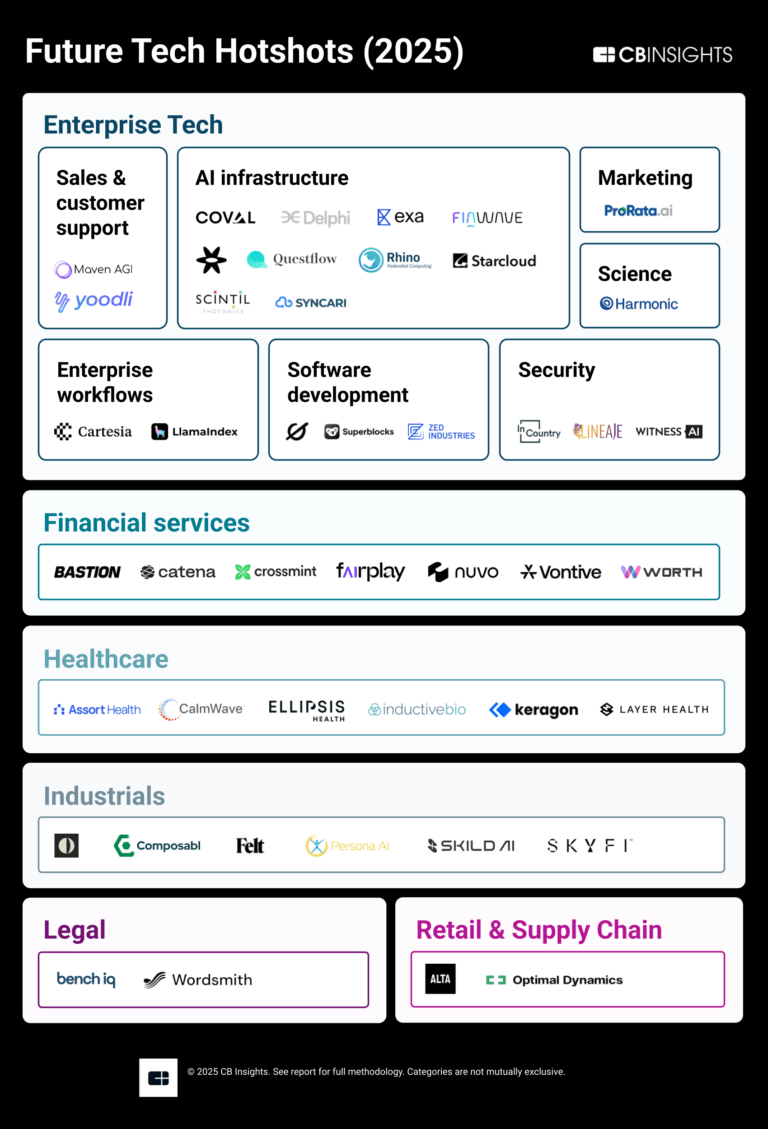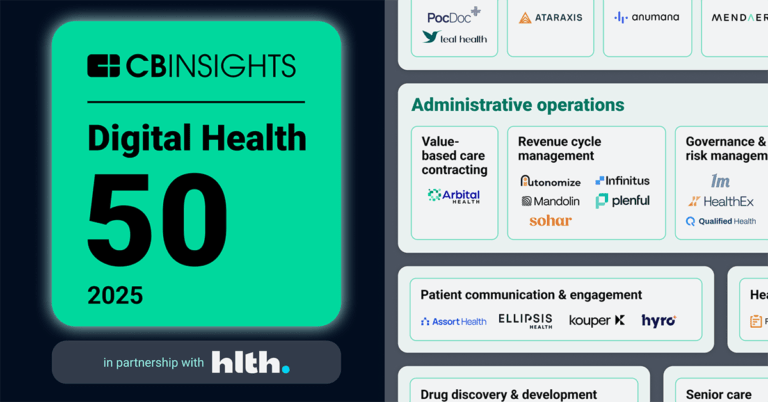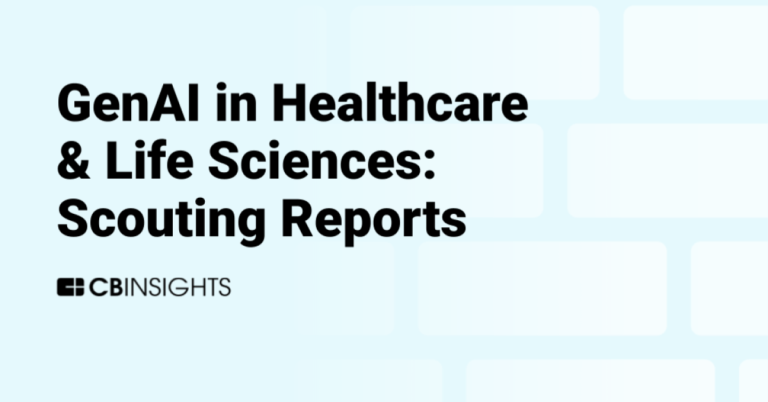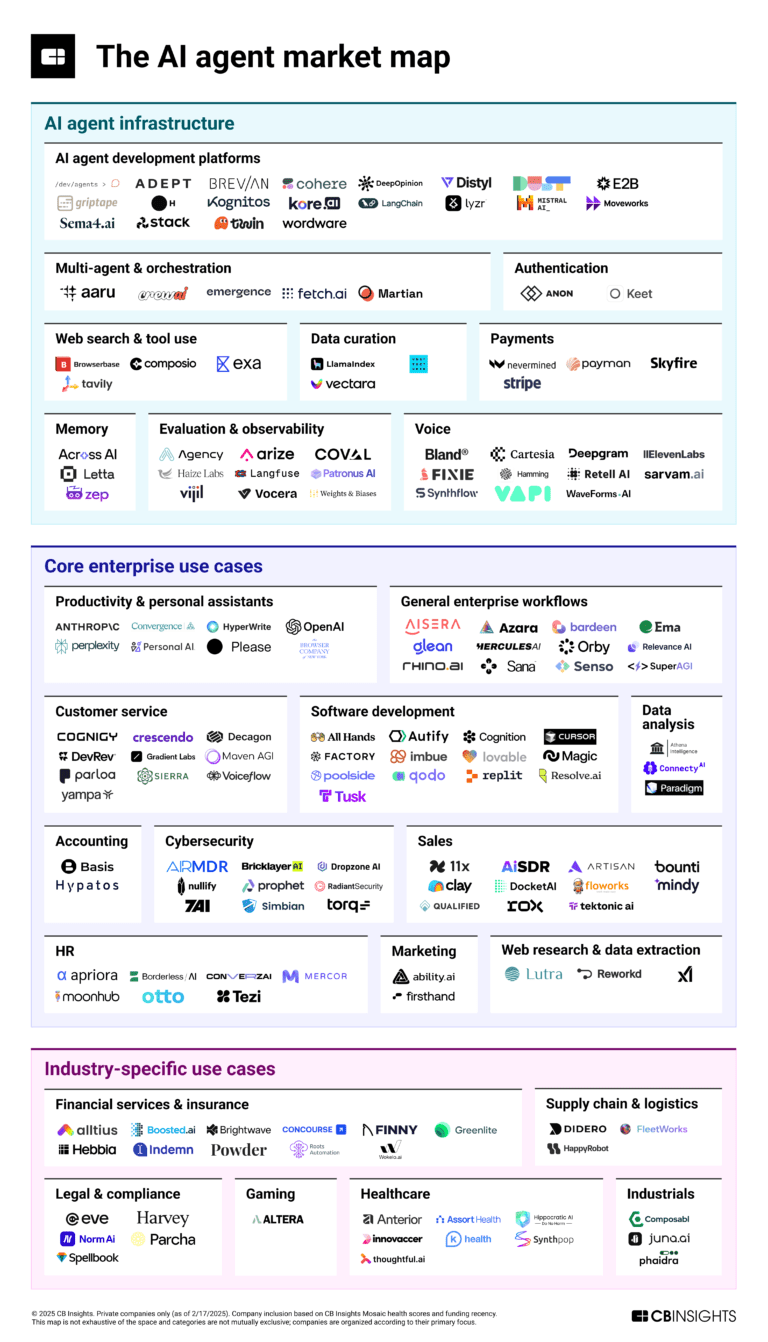
Assort Health
Founded Year
2023Stage
Series B | AliveTotal Raised
$101.5MValuation
$0000Last Raised
$76M | 3 mos agoRevenue
$0000Mosaic Score The Mosaic Score is an algorithm that measures the overall financial health and market potential of private companies.
+273 points in the past 30 days
About Assort Health
Assort Health focuses on generative AI technology for the healthcare sector, particularly in call center operations. The company provides AI agents that manage patient calls and schedule appointments. Assort Health's solutions are tailored to various medical specialties. It was founded in 2023 and is based in San Francisco, California.
Loading...
ESPs containing Assort Health
The ESP matrix leverages data and analyst insight to identify and rank leading companies in a given technology landscape.
The healthcare call center solutions market provides technology platforms that optimize medical helpline operations and patient interactions. These solutions include AI-powered virtual agents, real-time assistance tools, and analytics systems that automate patient inquiries and integrate with healthcare management systems. Key features include automated scheduling, workflow automation, quality mon…
Assort Health named as Challenger among 15 other companies, including Microsoft, Genesys, and Google.
Loading...
Research containing Assort Health
Get data-driven expert analysis from the CB Insights Intelligence Unit.
CB Insights Intelligence Analysts have mentioned Assort Health in 5 CB Insights research briefs, most recently on Oct 23, 2025.


Oct 20, 2025 report
Digital Health 50: The most promising digital health startups of 2025
Aug 22, 2025 report
Book of Scouting Reports: Generative AI in Healthcare & Life Sciences
Mar 6, 2025
The AI agent market map: March 2025 editionExpert Collections containing Assort Health
Expert Collections are analyst-curated lists that highlight the companies you need to know in the most important technology spaces.
Assort Health is included in 7 Expert Collections, including Generative AI.
Generative AI
2,951 items
Companies working on generative AI applications and infrastructure.
Artificial Intelligence (AI)
20,894 items
AI agents (March 2025)
376 items
Companies developing AI agent applications and agent-specific infrastructure. Includes pure-play emerging agent startups as well as companies building agent offerings with varying levels of autonomy. Not exhaustive.
Digital Health
12,122 items
The digital health collection includes vendors developing software, platforms, sensor & robotic hardware, health data infrastructure, and tech-enabled services in healthcare. The list excludes pureplay pharma/biopharma, sequencing instruments, gene editing, and assistive tech.
AI agents & copilots
1,772 items
Companies developing AI agents, assistants/copilots, and agentic infrastructure. Includes pure-play emerging agent startups as well as companies building agent offerings with varying levels of autonomy.
Future Tech Hotshots 2025
45 items
Latest Assort Health News
Oct 27, 2025
The Hidden Bottleneck At The Front Desk As mentioned above, when front-desk staff constantly churn, healthcare operations suffer. And the impact trickles down to every part of the practice workflow. Let's take a look at some examples: • Missed phone calls lead to lost revenue opportunities. • A lack of documentation due to staff shortages results in incomplete records for the providers. • Inconsistent post-treatment follow-up affects patient outcomes. • Scheduling breakdowns mean that patients often can't book appointments, even when doctors have availability. And the issue gets worse because front-desk staff are expected to manage multiple systems, from electronic medical records (EMRs) to insurance portals and third-party scheduling tools. Instead of focusing on patient needs, they're buried under repetitive, time-consuming tasks. The Turnover Problem And Why AI-Empowered Humans Can Be The Key From what I've seen, healthcare practices have tried everything—higher pay, better training and multilayer management—but the turnover persists. The reality is that front-desk jobs are stressful, repetitive and difficult to scale without technology. The problem is two-fold: • A lack of technology that meets the practice's needs. • A lack of understanding of technology at a practitioner level, leading to manual work for front-desk staff. Adding more people doesn't always solve the underlying problem. The operational burden keeps increasing as the number of patients increases because now more patients want faster access to care and faster communication. Without rethinking the model, clinics have remained stuck in the same loop for decades: hire, train, lose staff and hire again. In many industries, AI is being used to reduce the dependency on people, such as AI sales development representatives, AI copywriters in marketing and AI coders in tech. But healthcare is different. Trying to replace staff in healthcare is a recipe for disaster because it's already starved for staff. Attempting to fully automate or eliminate roles would create more problems, not fewer. Instead, AI's role in healthcare is to augment humans, filling the operational gaps caused by staff turnover and administrative overload. Real-Life Examples Some companies are already addressing this gap. For example, Emitrr is helping clinics handle front-desk loads through AI-powered agents that can answer phones, schedule and reschedule appointments, verify insurance and follow up with patients. These agents can reduce pressure on staff and make communication with patients faster and more consistent. Similarly, platforms like Hippocratic AI and Assort Health are building AI agents for care coordination and post-care follow-ups to check on a patient's condition. Although different companies target various stages of the care journey, whether pre-care or post-care, their shared goal remains the same. The Road Ahead AI won't and can't solve the healthcare front-desk staffing problem overnight, but it represents one path forward. Training and hiring take years. But AI can help right now by reducing the burden on the people already doing the work. The next decade of healthcare won't be defined by AI replacing humans. It will be defined by AI working alongside humans, helping the industry navigate one of its biggest crises. Forbes Technology Council is an invitation-only community for world-class CIOs, CTOs and technology executives. Do I qualify?
Assort Health Frequently Asked Questions (FAQ)
When was Assort Health founded?
Assort Health was founded in 2023.
Where is Assort Health's headquarters?
Assort Health's headquarters is located at 655 Montgomery Street, San Francisco.
What is Assort Health's latest funding round?
Assort Health's latest funding round is Series B.
How much did Assort Health raise?
Assort Health raised a total of $101.5M.
Who are the investors of Assort Health?
Investors of Assort Health include First Round Capital, Quiet Capital, chemistry, A* Capital, Liquid 2 Ventures and 11 more.
Who are Assort Health's competitors?
Competitors of Assort Health include UnityAI and 1 more.
Loading...
Compare Assort Health to Competitors

Sully.ai provides AI-based agents for the healthcare industry. Its offerings include AI agents that assist with managing electronic health records, clinical procedures, and administrative functions. Its agents integrate with existing healthcare tools and comply with industry standards for data security and privacy. Sully.ai was formerly known as Odiggo. It was founded in 2023 and is based in Santa Clara, California.
Quadrant Health focuses on enhancing outpatient care through its healthcare technology platform. It offers a platform designed to increase revenue and improve team efficiency by integrating world-class clinical artificial intelligence. It was founded in 2021 and is based in San Francisco, California.
UnityAI focuses on integrating artificial intelligence into healthcare. The company's main service involves using advanced AI models to observe and analyze data from healthcare facilities and then calculate the next actions for care team members, thereby creating efficient and harmonious care environments. It primarily sells to the healthcare industry. It was founded in 2023 and is based in Nashville, Tennessee.
ScrubChart.ai provides AI-driven solutions for healthcare, focusing on optimizing hospital operations and patient management. Their C4 Command and Control Digital Platform utilizes predictive analytics and real-time data integration to improve patient outcomes and hospital Length of Stay (LOS). The company serves the healthcare sector, emphasizing emergency department admissions and patient flow in acute care. ScrubChart.ai was formerly known as Maisha Labs. It was founded in 2017 and is based in Tel Aviv, Israel.

Kepler Vision Technologies develops artificial intelligence solutions for the healthcare sector, focusing on patient and elderly care safety. The main products, Kepler Night Nurse and Kepler Nurse Assist, are software applications that monitor patients and clients to detect falls and unsafe situations, alerting caregivers. These solutions provide care services while ensuring privacy and minimizing false alarms. It was founded in 2018 and is based in Amsterdam, Netherlands.

Bitscopic is a healthcare analytics and workflow platform software company that utilizes high-resolution data to support healthcare organizations in making informed decisions and optimizing care. The company provides products that assist healthcare sectors, including public health, clinical research, and hospital systems. It was founded in 2012 and is based in Redwood City, California.
Loading...

